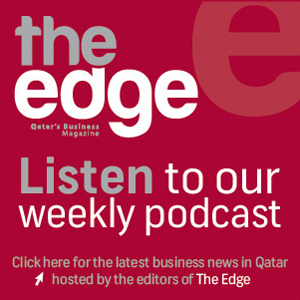What is the potential impact of higher US rates on Qatar?
With the United States (US) Federal Reserve likely to raise the interest rate anytime before the end of this year, Qatar may have to do the same, as its currency is pegged to the US dollar, writes Oliver Cornock.
For many months now, investors worldwide have been keenly observing every statement of US Federal Reserve chair Janet Yellen, in order to get a sense whether and when the interest rate would be hiked. The July meeting of the Federal Open Market Committee (FOMC) had also prompted yet another round of speculation.
Yet, while there is still much contention over the exact timing and scale of any rate rise, most investors are agreed that before the year is out, US rates will get their first major hike in almost a decade.
This has major implications across the global economy, with the countries of the Gulf Cooperation Council (GCC) – including Qatar – unlikely to be immune from the impact. With the state’s currency pegged to the dollar, rate rises posted in Washington will likely mean rate rises in Doha.
How these will play out as Qatar looks to maintain growth and spending in an environment of falling oil and gas prices – and therefore state revenues – is a major question for the country’s planners and businesses.
If the US does raise rates later this year – and some analysts suggest this could come as early as September – emerging markets (EMs) are thought particularly likely to suffer. Raised rates will make the US even more of a preferred destination for investors than it already is, boosting capital outflows from EMs.
What has been exercising minds in Doha more then, is the potential impact of a strengthening dollar and higher US rates on the Qatari riyal, local bond yields – which have already been rising – and interest rates.
The dollar peg means Doha is obliged to follow the US when it raises or lowers its rates. The question thus becomes, while it may make sense for the US Federal Reserve to raise rates this year, does it make sense for Qatar – and other GCC countries – to do likewise?
A first glance at the economic indicators suggests not. Lower oil prices have impacted the economy, and while those prices stabilised around USD65 (QAR237) a barrel in the earlier part of the year, they have since fallen again, with Brent crude trading at around USD53 (QAR193) at the end of July. The government also cut its gross domestic product (GDP) growth forecast for 2015, while the International Monetary Fund (IMF) expects a gradual slowing in real GDP growth over the next few years, as public investment tapers off.
While the US Federal Reserve is likely to raise interest rates on the back of accelerating growth in the US economy, encouraging extra growth is more of a concern in the Gulf.
However, the currency peg still has its advantages, as does a stronger dollar. The latter has had a deflationary effect within Qatar, while also strengthening the purchasing power of revenue from dollar-priced exports, such as oil and gas.
On the peg itself, the IMF remains in favour, reporting back in April that the peg has served Qatar well, both when oil and gas prices have been high and when they have been low.
According to the IMF, the peg anchors prices and provides stability to income flows and financial wealth. It further stated that while there are disadvantages to the restrictions on monetary policy a peg creates, in Qatar, fiscal and macro-prudential policies can handle anything these restrictions throw up.
Doha does also have some time to play with, as its rates are already higher than US ones – the Qatar Central Bank deposit rate has been steady at 0.75 percent since 2011, while the US Federal Reserve funds rate has been around 0.25 percent.
July’s FOMC meeting saw the US decide to keep rates unchanged for now, but Qatar will likely have to respond to a rise soon. Many investors will thus be waiting to see just how in or out of sync that response is obliged to be.
Oliver Cornock is the regional editor, Middle East, for Oxford Business Group.
Like this story? Share it.






